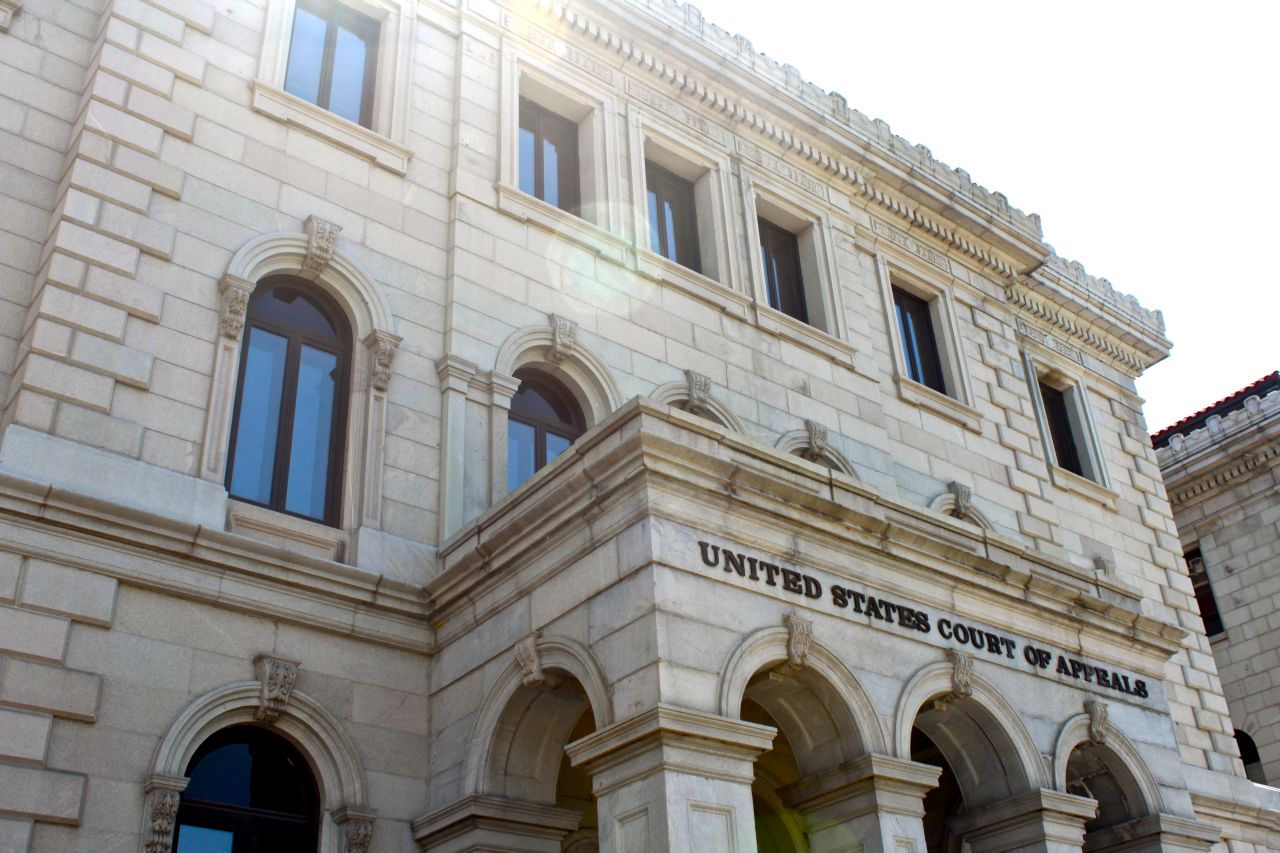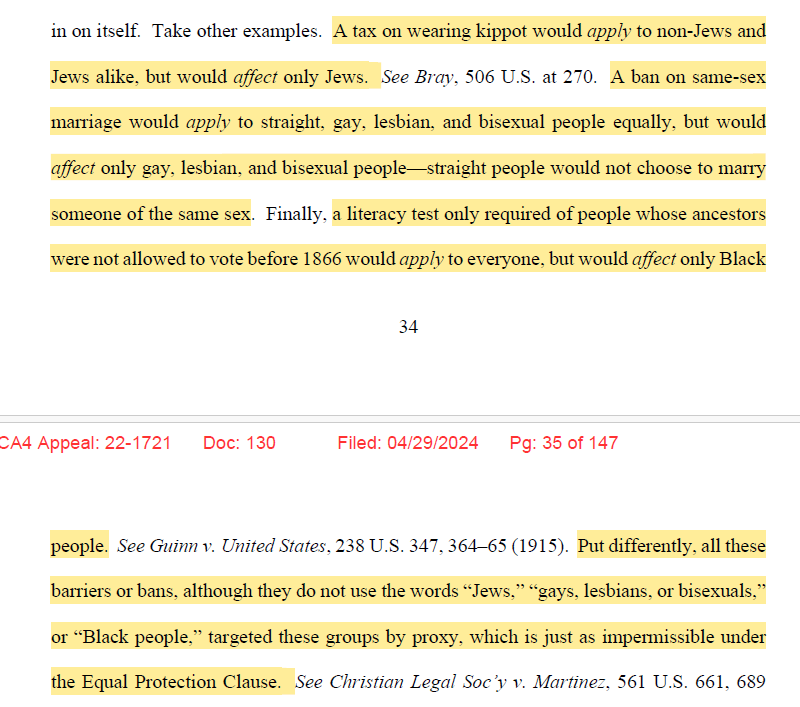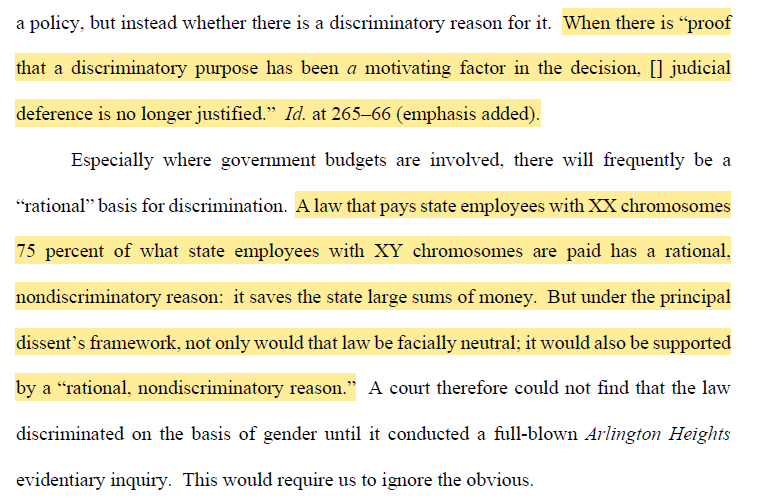National
Legal experts disagree over Obama action on ‘Don’t Ask’
Does Oath of Office force presidents to defend all laws?

Nan Hunter, a Georgetown University law professor and prominent gay rights attorney, says President Obama has done the right thing in appealing a decision by a federal judge that overturned the ‘Don’t Ask, Don’t Tell’ law.
Hunter’s view contradicts the position of nearly all national LGBT rights groups, which have urged Obama not to appeal the decision. But she is joined by a number of other legal and constitutional experts who oppose ‘Don’t Ask, Don’t Tell’ but believe U.S. presidents are obligated to defend laws passed by Congress under most circumstances.
“I think the president, through the Justice Department, should defend federal laws, including this one,” Hunter said. “Otherwise you just get way too much. You get the president being able to ignore laws that are passed by Congress, and that’s not a good situation.”
Hunter cautioned LGBT activists that dismantling the longstanding tradition that presidents should defend duly enacted laws — even unpopular ones — could result in the refusal by a different president to enforce laws beneficial to LGBT people.
Other legal experts, including constitutional specialists with the American Civil Liberties Union and the LGBT litigation group Lambda Legal, agree that presidents generally should defend federal laws. But they say the obligation to defend a law should not apply to cases where strong evidence exists that the law is unconstitutional and a court issues a ruling overturning the law on constitutional grounds.
“The ACLU recognizes the Executive’s duty to ‘take care that the laws be faithfully executed,’” said ACLU Executive Director Anthony Romero in an Oct. 14 open letter to Attorney General Eric Holder.
“This duty includes the responsibility to defend Acts of Congress in court, provided there is at least a reasonable argument in favor of the Act’s constitutionality,” Romero said. “At the same time, the Executive is duty bound to ‘preserve, protect and defend the Constitution of the United States,’ which guarantees that no person is ‘deprived of life, liberty or property without due process of law.’”
Romero noted that U.S. District Court Judge Virginia Phillips in California ruled in September that the ‘Don’t Ask, Don’t Tell’ law is unconstitutional on those same grounds.
“The question is no longer whether the Executive will defend an Act of Congress, but whether the Executive will appeal from a well-reasoned, obviously correct federal court ruling based on findings of fact that are exceedingly unlikely to be reversed,” he said in his letter.
“Given these findings and the proper legal standard of review to be applied, there is no reasonable argument for the constitutionality of the policy, and no reason for the government to appeal,” he said.
Hunter, who personally opposes ‘Don’t Ask, Don’t Tell,’ said following that course could become a “political disaster” that prompts a possible Republican Congress next year to take action to reinstate the law or attempt to force the president to continue to enforce it.
A far better course of action, according to Hunter, would be for the administration to appeal the decision and use a careful, strategic approach to presenting its arguments before the appeals court.
“There are many, many possibilities for how the administration could respond,” she said. “It could respond by filing the appeal so that the case goes to the appeals court and then making arguments that represent the president’s view that it’s a bad law…And then the court of appeals will decide, and that will have much more authority than one District Court judge.”
Susan Sommer, director of constitutional litigation for Lambda Legal, says Obama should not have appealed Judge Phillip’s decision to overturn ‘Don’t Ask, Don’t Tell.’
“It’s really a shame that the Obama administration is appealing this decision,” Sommer said. “The president is in no position to appeal a decision on a policy that the courts say is unconstitutional. He has an obligation to uphold the Constitution.”
Sommer said she agrees that Obama has an obligation to uphold laws as well as the Constitution.
“But he does not have an obligation to defend a statute whose constitutionality is being challenged in court,” she said. “There have been precedents of a president not defending a law under court challenge. The Justice Department exercises discretion all the time on whether to take cases or not, both civil and criminal.”
David Rittgers, legal policy analyst for the Cato Institute, a libertarian think tank, and an attorney with the Army Reserves, called the ‘Don’t Ask, Don’t Tell’ case a “unique situation” that involves all three branches of the federal government.
Saying he’s speaking for himself and not the Army, Rittgers said he sides with those who believe the president should defend laws, including this one.
“Congress ultimately has to answer this question,” he said. “This will not be a settled issue until Congress acts. This is constitutionally within the realm of Congress.”
Susan Low Bloch, a Georgetown University law professor who specializes in constitutional law, said presidents have refused to enforce laws or chosen not to appeal court decisions overturning them mostly in cases where the law interferes with the president’s or the executive branch’s ability to carry out its duties.
“That’s not the situation with ‘Don’t Ask, Don’t Tell,’” she said. “And that’s why it’s not at all surprising to me that the administration has chosen to defend the law, even though they don’t like it. The way to get rid of it is to undo it the proper way—to get Congress to undo it.”
“Now if the court strikes it down, I’m sure behind the scenes the president will be very happy. But he’s not supposed to go into court and undermine it,” she said.
Asked whether she believes a president should wait for the Supreme Court to strike down a law before he or she can stop enforcing it, Bloch said, “Yes, that’s right.”
“People really shouldn’t be surprised at this course because … clearly this is the way the system has worked and I think should work,” she said.
(Obama photo by Michael Key)
National
United Methodist Church removes 40-year ban on gay clergy
Delegates also voted for other LGBTQ-inclusive measures

The United Methodist Church on Wednesday removed a ban on gay clergy that was in place for more than 40 years, voting to also allow LGBTQ weddings and end prohibitions on the use of United Methodist funds to “promote acceptance of homosexuality.”
Overturning the policy forbidding the church from ordaining “self-avowed practicing homosexuals” effectively formalized a practice that had caused an estimated quarter of U.S. congregations to leave the church.
The New York Times notes additional votes “affirming L.G.B.T.Q. inclusion in the church are expected before the meeting adjourns on Friday.” Wednesday’s measures were passed overwhelmingly and without debate. Delegates met in Charlotte, N.C.
According to the church’s General Council on Finance and Administration, there were 5,424,175 members in the U.S. in 2022 with an estimated global membership approaching 10 million.
The Times notes that other matters of business last week included a “regionalization” plan, which gave autonomy to different regions such that they can establish their own rules on matters including issues of sexuality — about which international factions are likelier to have more conservative views.
Rev. Kipp Nelson of St. Johns’s on the Lake Methodist Church in Miami shared a statement praising the new developments:
“It is a glorious day in the United Methodist Church. As a worldwide denomination, we have now publicly proclaimed the boundless love of God and finally slung open the doors of our church so that all people, no matter their identities or orientations, may pursue the calling of their hearts.
“Truly, all are loved and belong here among us. I am honored to serve as a pastor in the United Methodist Church for such a time as this, for our future is bright and filled with hope. Praise be, praise be.”
Federal Government
Republican state AGs challenge Biden administration’s revised Title IX policies
New rules protect LGBTQ students from discrimination

Four Republicans state attorneys general have sued the Biden-Harris administration over the U.S. Department of Education’s new Title IX policies that were finalized April 19 and carry anti-discrimination protections for LGBTQ students in public schools.
The lawsuit filed on Tuesday, which is led by the attorneys general of Kentucky and Tennessee, follows a pair of legal challenges from nine Republican states on Monday — all contesting the administration’s interpretation that sex-based discrimination under the statute also covers that which is based on the victim’s sexual orientation or gender identity.
The administration also rolled back Trump-era rules governing how schools must respond to allegations of sexual harassment and sexual assault, which were widely perceived as biased in favor of the interests of those who are accused.
“The U.S. Department of Education has no authority to let boys into girls’ locker rooms,” Tennessee Attorney General Jonathan Skrmetti said in a statement. “In the decades since its adoption, Title IX has been universally understood to protect the privacy and safety of women in private spaces like locker rooms and bathrooms.”
“Florida is suing the Biden administration over its unlawful Title IX changes,” Florida Gov. Ron DeSantis wrote on social media. “Biden is abusing his constitutional authority to push an ideological agenda that harms women and girls and conflicts with the truth.”
After announcing the finalization of the department’s new rules, Education Secretary Miguel Cardona told reporters, “These regulations make it crystal clear that everyone can access schools that are safe, welcoming and that respect their rights.”
The new rule does not provide guidance on whether schools must allow transgender students to play on sports teams corresponding with their gender identity to comply with Title IX, a question that is addressed in a separate rule proposed by the agency in April.
LGBTQ and civil rights advocacy groups praised the changes. Lambda Legal issued a statement arguing the new rule “protects LGBTQ+ students from discrimination and other abuse,” adding that it “appropriately underscores that Title IX’s civil rights protections clearly cover LGBTQ+ students, as well as survivors and pregnant and parenting students across race and gender identity.”
Federal Government
4th Circuit rules gender identity is a protected characteristic
Ruling a response to N.C., W.Va. legal challenges

BY ERIN REED | The 4th U.S. Circuit Court of Appeals ruled Monday that transgender people are a protected class and that Medicaid bans on trans care are unconstitutional.
Furthermore, the court ruled that discriminating based on a diagnosis of gender dysphoria is discrimination based on gender identity and sex. The ruling is in response to lower court challenges against state laws and policies in North Carolina and West Virginia that prevent trans people on state plans or Medicaid from obtaining coverage for gender-affirming care; those lower courts found such exclusions unconstitutional.
In issuing the final ruling, the 4th Circuit declared that trans exclusions were “obviously discriminatory” and were “in violation of the equal protection clause” of the Constitution, upholding lower court rulings that barred the discriminatory exclusions.
The 4th Circuit ruling focused on two cases in states within its jurisdiction: North Carolina and West Virginia. In North Carolina, trans state employees who rely on the State Health Plan were unable to use it to obtain gender-affirming care for gender dysphoria diagnoses.
In West Virginia, a similar exclusion applied to those on the state’s Medicaid plan for surgeries related to a diagnosis of gender dysphoria. Both exclusions were overturned by lower courts, and both states appealed to the 4th Circuit.
Attorneys for the states had argued that the policies were not discriminatory because the exclusions for gender affirming care “apply to everyone, not just transgender people.” The majority of the court, however, struck down such a claim, pointing to several other cases where such arguments break down, such as same-sex marriage bans “applying to straight, gay, lesbian, and bisexual people equally,” even though straight people would be entirely unaffected by such bans.
Other cases cited included literacy tests, a tax on wearing kippot for Jewish people, and interracial marriage in Loving v. Virginia.
See this portion of the court analysis here:

Of particular note in the majority opinion was a section on Geduldig v. Aiello that seemed laser-targeted toward an eventual U.S. Supreme Court decision on discriminatory policies targeting trans people. Geduldig v. Aiello, a 1974 ruling, determined that pregnancy discrimination is not inherently sex discrimination because it does not “classify on sex,” but rather, on pregnancy status.
Using similar arguments, the states claimed that gender affirming care exclusions did not classify or discriminate based on trans status or sex, but rather, on a diagnosis of gender dysphoria and treatments to alleviate that dysphoria.
The majority was unconvinced, ruling, “gender dysphoria is so intimately related to transgender status as to be virtually indistinguishable from it. The excluded treatments aim at addressing incongruity between sex assigned at birth and gender identity, the very heart of transgender status.” In doing so, the majority cited several cases, many from after Geduldig was decided.
Notably, Geduldig was cited in both the 6th and 11th Circuit decisions upholding gender affirming care bans in a handful of states.
The court also pointed to the potentially ridiculous conclusions that strict readings of what counts as proxy discrimination could lead to, such as if legislators attempted to use “XX chromosomes” and “XY chromosomes” to get around sex discrimination policies:
Importantly, the court also rebutted recent arguments that Bostock applies only to “limited Title VII claims involving employers who fired” LGBTQ employees, and not to Title IX, which the Affordable Care Act’s anti-discrimination mandate references. The majority stated that this is not the case, and that there is “nothing in Bostock to suggest the holding was that narrow.”
Ultimately, the court ruled that the exclusions on trans care violate the Equal Protection Clause of the Constitution. The court also ruled that the West Virginia Medicaid Program violates the Medicaid Act and the anti-discrimination provisions of the Affordable Care Act.
Additionally, the court upheld the dismissal of anti-trans expert testimony for lacking relevant expertise. West Virginia and North Carolina must end trans care exclusions in line with earlier district court decisions.
The decision will likely have nationwide impacts on court cases in other districts. The case had become a major battleground for trans rights, with dozens of states filing amicus briefs in favor or against the protection of the equal process rights of trans people. Twenty-one Republican states filed an amicus brief in favor of denying trans people anti-discrimination protections in healthcare, and 17 Democratic states joined an amicus brief in support of the healthcare rights of trans individuals.
Many Republican states are defending anti-trans laws that discriminate against trans people by banning or limiting gender-affirming care. These laws could come under threat if the legal rationale used in this decision is adopted by other circuits. In the 4th Circuit’s jurisdiction, West Virginia and North Carolina already have gender-affirming care bans for trans youth in place, and South Carolina may consider a similar bill this week.
The decision could potentially be used as precedent to challenge all of those laws in the near future and to deter South Carolina’s bill from passing into law.
The decision is the latest in a web of legal battles concerning trans people. Earlier this month, the 4th Circuit also reversed a sports ban in West Virginia, ruling that Title IX protects trans student athletes. However, the Supreme Court recently narrowed a victory for trans healthcare from the 9th U.S. Circuit Court of Appeals and allowed Idaho to continue enforcing its ban on gender-affirming care for everyone except the two plaintiffs in the case.
Importantly, that decision was not about the constitutionality of gender-affirming care, but the limits of temporary injunctions in the early stages of a constitutional challenge to discriminatory state laws. It is likely that the Supreme Court will ultimately hear cases on this topic in the near future.
Celebrating the victory, Lambda Legal Counsel and Health Care Strategist Omar Gonzalez-Pagan said in a posted statement, “The court’s decision sends a clear message that gender-affirming care is critical medical care for transgender people and that denying it is harmful and unlawful … We hope this decision makes it clear to policy makers across the country that health care decisions belong to patients, their families, and their doctors, not to politicians.”
****************************************************************************

Erin Reed is a transgender woman (she/her pronouns) and researcher who tracks anti-LGBTQ+ legislation around the world and helps people become better advocates for their queer family, friends, colleagues, and community. Reed also is a social media consultant and public speaker.
******************************************************************************************
The preceding article was first published at Erin In The Morning and is republished with permission.





















